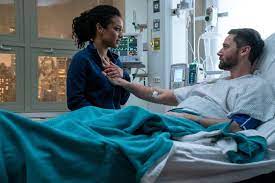Bed Recovery Tips
April 6, 2022 /
JimmieDean
/ 0 Comments
After undergoing surgery or coming home from the hospital due to illness, one thing that you need is bed rest and bed recovery. Planning your recovery process with your doctor will help the patient from straining or suffering from daily hassles. Bed recovery is recommended for anyone who just underwent surgery. Discussing with your doctor what to expect at home helps the patient recover at home stress-free. Some of the fundamental questions to ask the doctor include some of the following:
- How long should the sick leave last? This is important because it will determine the number of days to request from your boss or at the workplace to prevent people from going back to work when they have not fully recovered from illnesses.
- How long until one can use assistive devices for mobility?
- How long until I can resume a job or make money?
- How long until I can drive myself?
- Will I require specialised care from a skilled nurse or not?
- What home-based equipment must one buy before undergoing surgical procedures, and if it was an accident, how long can it take to order one and at what cost.
Knowing what assistive devices to purchase to help you in the recovery process is fundamental for the best possible health outcome.
Here are some of the tips that will help mitigate risks and promote quick recovery:
- Put in place fall prevention measures; this is important, especially for the elderly and those with a high risk of fall injuries. Make sure all loose ends are tacked, i.e. tacking carpet ends, removing throw pillows, fixing floor faults and slippery floors using non-skid mats and so on. Clear walkways by pegging power cords, toys, telephone cords and more for ease of accessibility into every room without the risk of falling.
- Consider your washroom needs and plan for assistive devices accordingly; discuss the toileting needs with the doctor to determine devices that will help you easily access and comfortably use the toilets. Several options are available that take care of toileting needs, for example, raised toilet seats, safety frames, grab bars and more. Assistive wipe tools ensure your independence and privacy, plus prevent risks. Bedside commodes are recommended for persons who are not yet able to get out of bed, while urinals and bedpans help patients who are disabled, whether temporarily or permanently, unable to move out of bed. These devices make recuperation quick and painless for the patients.
- Mobility support for patients who can walk with the necessary supportive devices; depending on the illness or surgery the patient underwent, there are several mobilities aids available that a doctor may prescribe for you to get around easily. Mobility devices such as wheelchairs, motorised wheelchairs and transport chairs are some of the options available to get you around while you recuperate.
- Bed support is important for quick and painless recovery. These recovery beds supplied by Select Patient Care are adjustable, so the patients adjust accordingly until he or she finds the right position to lay on. Hospital beds, for example, are highly adjustable and if it means buying or renting one, you should, depending on how long you anticipate to be down. Other devices will help in repositioning patients, such as recliners, sofas, wedge pillows, throw in pillows and more.
Leave a Reply Cancel reply
Latest Feed
Subscribe Us
SUBSCRIBE TO NEWSLETTER
.......... ..........Subscribe to our mailing list to get updates to your email inbox.
GET MONTHLY NEWSLETTER


